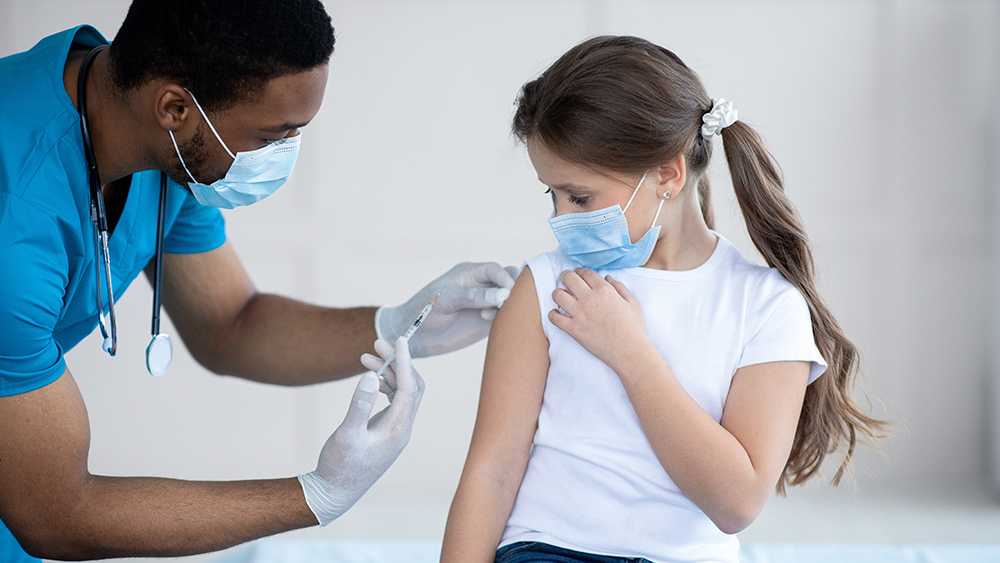Leaked emails reveal EU vaccine regulators were worried about early batches of Pfizer’s coronavirus vaccine
03/17/2021 / By Zoey Sky

The coronavirus (COVID-19) pandemic continues to infect millions of people across the globe as new strains are also rumored to be spreading in certain countries.
With several vaccines approved and already being given to the public, it looks like there’s a reason to think twice about getting inoculated. Shocking leaked emails from the European Medicines Agency (EMA), one of Europe’s medical regulators, have revealed that “[m]ajor concerns were raised about the quality of early batches of Pfizer’s coronavirus vaccine.”
The documents were leaked to the British Medical Journal (BMJ) after a cyberattack on the EMA in December 2020.
Details from the leaked emails
According to the leaked documents, the researchers in charge of evaluating the chemicals sent to the bloc for approval in 2020 discovered that the doses were of a lower standard than Pfizer had promised.
Back in November 23, 2020, an email from a senior EMA warned of a “significant difference” in the quality of the vaccines compared to doses used in Pfizer’s clinical trials.
It remains unknown why earlier batches of the Pfizer-BioNTech vaccine were of poorer quality. The email also revealed that the impact on the safety and efficacy of the vaccine was “yet to be defined.”
Details were also scarce on the possibility of similar quality issues being raised in the U.K., where the Pfizer-BioNTech vaccine is one of two vaccines that has already been given to 23 million Brits.
EMA targeted in a 2020 cyberattack
The Dutch newspaper De Volkskrant reported that a Russian intelligence agency and Chinese spies were behind the 2020 cyberattacks on the EMA based on data from sources close to the investigation.
De Volkskrant reported that the EMA was targeted by Chinese spies in the first half of the year while Russian intelligence agents launched cyberattacks later in 2020. The Chinese first hacked the systems of a German university.
Meanwhile, the Russians were said to have “exploited flaws in the EMA’s two-step verification login” and other kinds of cyberdefense.
In an emailed response EMA spokeswoman Monika Benstetter explained that law enforcement authorities and other entities have launched a criminal investigation, with the agency “fully cooperating.” Benstetter declined to comment any further.
The Russian hackers supposedly had access to the EMA’s systems for over a month, sources told De Volkskrant. The Russians were said to be interested in which countries would use the Pfizer-BioNTech COVID-19 vaccine and how much they would pay for the jabs.
After EMA announced the data breach, Pfizer and BioNTech also revealed that documents concerning their vaccine were also accessed in the cyberattacks. Following the EMA breach, EU officials filed two “major objections” to Pfizer and other quality control questions it wanted to be resolved before approving the vaccine.
The trouble with mRNA
Pfizer-BioNTech’s vaccine contains messenger RNA (mRNA), an “extremely volatile genetic material” that needs to be stored at exactly -94 F (-70 C). Because of its unstable nature, when not stored or transported properly the mRNA in vaccines can be damaged by other molecules in the environment, along with light and temperature.
According to updated guidance, the vaccine can be stored at normal freezer temperatures for at least two weeks. Once it arrives at a clinic, the Pfizer-BioNTech vaccine can be stored in a fridge for five days before being administered.
The EMA reported that only 55 percent of the mRNA in the vaccines shipped to the EU were stable and intact. At least 78 percent of the mRNA in the vaccine remained stable in Pfizer’s studies. It’s unclear how this affects the vaccines, but experts warn that intact mRNA is crucial for “the potency of the vaccine.”
Individual emails were “authentic,” but leaked information was “partially doctored”
The EMA approved the Pfizer-BioNTech vaccine on Dec. 21. The agency also said that the vaccine’s quality was “sufficiently consistent and acceptable,” but there were no details on how the EMNA’s objections and concerns were satisfied.
In a leaked email dated Nov. 25, one EMA official said that vaccines from the most recent batch had at least 70 to 75 percent of mRNA intact, leaving officials “cautiously optimistic” that additional data could help resolve the matter.
This email was only one of over 40 megabytes of classified information from the EMA’s review that was released on the dark web after the cyber attack. Journalists, along with experts from the BMJ, and academics worldwide received copies of the leaked EMA emails from anonymous email accounts.
Most of the senders were unreachable and none of them revealed their identity. The EMA announced that it will be pursuing a criminal investigation.
In a statement, the EMA clarified that while the leaked information was “partially doctored,” the emails were real. Additionally, hackers selected and accumulated data from different users.
The hackers also created screenshots from multiple folders and mailboxes and added more titles used in the data leak.
“Lack of transparency” from regulators and vaccine makers will be a problem in the future
Despite the leaked data about the compromised quality of their product, Pfizer insists that affected vaccines weren’t distributed. The company added that the EMA now double-checks their vaccine supply shipments.
Pfizer noted that all pending questions “have been duly addressed during the review process.” ‘The positive opinion granted by EMA… on December 21… are results of this process, meaning that all the questions raised during the procedure were addressed satisfactorily and the efficacy, safety and quality of the vaccine could be demonstrated on the data submitted,” added the company.
All batches of the vaccines are tested by the official medicinal control laboratory (OMCL), the Paul-Ehrlich Institute in Germany, before final product release. Pfizer insists that the quality of all vaccine doses placed on the market in Europe was double-tested to ensure compliance with the specifications agreed upon by the regulatory authorities.
If a batch doesn’t meet these required specifications, the product can’t be released in Europe. Additionally, equivalent quality controls are in place with the U.S. FDA and other regulators worldwide where the vaccine was authorized for use.
However, the email leaks cast doubt on the quality of other mRNA vaccines, particularly the Moderna vaccine, which is already being distributed in America. Moderna’s jab will also be shipped to Britain within the following weeks. (Related: UK government reports over 240 deaths shortly after coronavirus vaccination.)
Both Pfizer and Moderna have declined to reveal what percentage of mRNA integrity is considered acceptable for vaccines against the coronavirus. According to both the EMA and the US Food and Drug Administration (FDA), that specific information on criteria is confidential.
Pfizer also refused to comment on what percentage of mRNA integrity it is aiming for. It also didn’t explain what could have caused quality dips in the earlier batches of the vaccine.
The lack of transparency from both regulators and vaccine makers undoubtedly raises concerns about similar problems that may arise in the future.
Do you still think it’s safe to get vaccinated?
Sources include:
Tagged Under: 2019-nCoV, Big Pharma, BioNTech, coronavirus vaccine, covid-19, covid-19 pandemic, EU vaccine regulators, novel coronavirus, Pfizer, United Kingdom, Vaccine deaths, vaccine industry, vaccine injury, vaccine safety, vaccine wars, Wuhan coronavirus
RECENT NEWS & ARTICLES
VaccineDeaths.com is a fact-based public education website published by Vaccine Deaths Features, LLC.
All content copyright © 2018 by Vaccine Deaths Features, LLC.
Contact Us with Tips or Corrections
All trademarks, registered trademarks and servicemarks mentioned on this site are the property of their respective owners.




















